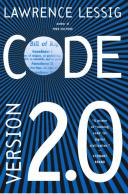Книга: Code 2.0
2. Protecting Hollywood
2. Protecting Hollywood
In 2000, a serial entrepreneur, Bill Craig, launched a Toronto-based service for the World Wide Web called iCraveTV. iCraveTV was designed to stream ordinary television across the Internet. Under Canadian law, at least as interpreted at the time,[7] iCraveTV believed it didn’t need permission to stream broadcast television across the Internet lines. Under Canadian law, so long as the broadcast itself wasn’t changed, you could use any technology to extend the reach of the broadcast.[8] So Craig bought his servers, fired up the streams, and with a much-hyped launch, sat back to wait for the customers to come. And come they did, by the millions. Craig’s service was an instant success. It seemed lots more than Craig craved TV.
Not long after Craig’s launch, however, he began to discover that not everyone loved Craig’s idea. In particular, U.S. copyright holders were not too keen on the free TV that Craig had created. While one was free in Canada to rebroadcast television across the Internet, one wasn’t in the United States. United States copyright law heavily regulates the right to rebroadcast, and Craig had not satisfied U.S rules.
iCraveTV did take some steps to keep U.S. residents out. But no one could really have expected these steps would work. At first, iCraveTV simply warned people that only Canadians were to use the site. Later iCraveTV added an area-code block to its site — you needed to specify your area code to get in; if the area code was not Canadian, you couldn’t get in. But it’s not hard to find a Canadian area code (for example, the telephone number of iCraveTV itself prominently displayed on iCraveTV’s website.)
But Craig didn’t think it was his job to police the infringing behavior of Americans. It didn’t violate the law for anyone to stream TV in Canada. Why did he need to worry about whether it violated the law in the U.S.?
A posse of American lawyers quickly convinced Craig that he needed to worry. In a lawsuit filed in Pittsburgh, the National Football League (and a few other parties) charged iCraveTV with copyright infringement in the United States. Whether or not it was legal in Canada to stream TV across the Internet, it was not legal in the United States. Thus, to the extent Americans could get access to this Canad ian site, they were violating American law. And to the extent this Canadian site made it possible for Americans to access this Canadian site, it was violating American law. The NFL thus demanded that the Pittsburgh court shut this Canadian server down.
The U.S. District Court Judge, Donald Ziegler, conducted an extensive fact-finding proceeding. On February 8, 2000, the Court issued an injunction shutting iCraveTV down. The Court gave iCraveTV 90 days to demonstrate that it had the technology to block U.S. residents. iCraveTV promised that, using some of the IP technologies described in Chapter 4, it could block 98 percent of American citizens. But 98 percent wasn’t good enough for the Court. If any American could access the iCraveTV site, iCraveTV was violating U.S. law.
iCraveTV couldn’t promise 100 percent success. Unlike Judge Gomez’s decision about France, however, there was no outrage on the Net following this decision. There weren’t thousands of websites criticizing it, or even a handful of editorials questioning it. Indeed, almost nobody noticed.




